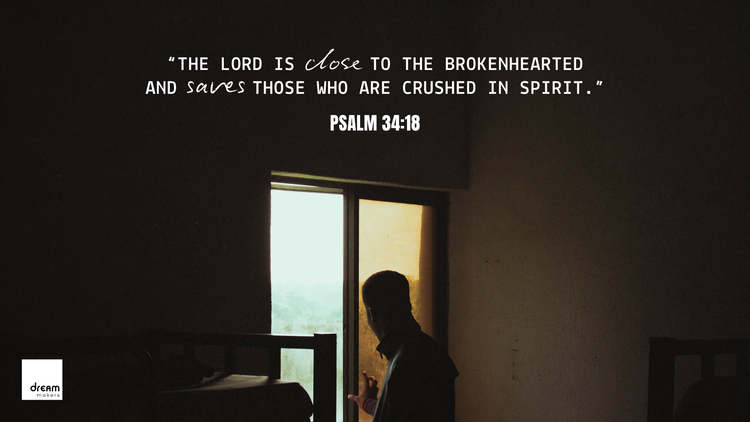You're Not Invisible: Note from a Former Foster Youth
If no one’s told you this lately—you are not invisible.
Not to me. And certainly not to God.
I know what it’s like to move through life feeling like you’ve been left behind. To grow up in systems where your worth was tied to performance, your identity to paperwork, and your belonging depended on placements that were never permanent. I know what it feels like when people leave without saying goodbye, when birthdays feel like just another day, and when the silence in your soul screams louder than any prayer you were ever taught to pray.
There’s something that happens to you after being told too many times that you’re too much, or not enough. You start to believe it. You start to carry that into how you see the world... and eventually, how you see God.
For those of us who’ve aged out of foster care, group homes, or other institutional systems, faith can be complicated. We’ve had to grow up fast, learn survival over trust, and navigate a life that rarely gave us a safe place to ask spiritual questions. So when someone says, “God loves you,” it might hit differently—it might even feel hollow.
But what if I told you... that God still wants you?
Not a future version of you.
Not a cleaned-up, “churchy” version of you.
Not the version who finally gets everything together.
The you reading this right now—tired, guarded, maybe even angry or unsure—that’s the one He’s after.
There’s a chapter in Luke that I can’t stop coming back to. Luke 15. In it, Jesus tells three stories back-to-back: one about a lost sheep, another about a lost coin, and a third about a lost son.
Let’s pause there. Jesus could’ve used any metaphor. But He didn’t choose warriors or kings. He chose something that got lost. Something that wandered. Something that didn’t even know how to come back.
In each of these parables, the central theme isn’t the failure of the lost—it’s the faithfulness of the One who searches.
The shepherd leaves the ninety-nine to go find the one sheep that strayed.
The woman turns her house upside down to recover one coin.
The father runs to embrace a son who thought he had forfeited his place.
And here’s what makes that even more radical:
Jesus told these stories to religious leaders who thought that only the “righteous” mattered to God. He wanted to disrupt that mindset and make something undeniably clear—He came for the ones who feel furthest from Him.
Historically, when Jesus said, “My sheep listen to my voice; I know them, and they follow me,” (John 10:27), He was referencing a cultural truth of the time: sheep didn’t respond to strangers—they responded only to the familiar voice of their own shepherd. He wasn’t talking about blind obedience. He was talking about deep relationship. Intimacy. Recognition. Belonging.
That means even if you’ve tuned Him out for a while, His voice hasn’t stopped calling for you.
Even if life, religion, or trauma tried to erase your sense of worth, Jesus never stopped seeing you as His.
Even if you’ve never had a stable home or a trustworthy father figure... the Father is still waiting on the porch of grace, arms wide open, ready to run toward you—not away from you.
You are not an afterthought in the kingdom.
You are the reason Jesus told these stories in the first place.
Prayer is simply talking to God. You don't have to use fancy words, just pray as you are. If you want to get started, but need some help, here's a heartfelt prayer that Michael wrote just for you:
Keep this prayer graphic as an encouragement by right-clicking and saving it to your photos!
Sign up below for our former foster youth newsletter:



